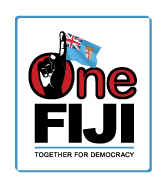By DOUGLAS MARTIN
Published: February 15, 2011
Josefa Iloilo, the president of Fiji who in 2009 provoked worldwide censure by tossing out the island nation’s Constitution, firing its judges and naming himself head of state, died on Feb. 6 in Suva, Fiji’s capital. He was 90.
His death was announced by Prime Minister Josaia Voreqe Bainimarama. Mr. Iloilo, who as a traditional Fijian chief was addressed by the honorific Ratu, had Parkinson’s disease and other maladies.
Fiji, which comprises about 330 islands in the central Pacific Ocean, was a British colony until 1970. It was under military control after a 2006 coup but did not formally reject its Constitution as a republic until Ratu Iloilo’s 2009 actions. Those actions were rooted in native Fijians’ longstanding resentment over the relative financial and political success of immigrants from India. In 1999, Mahendra Chaudhry, leader of the Fiji Labor Party, became the first person of Indian descent to be elected Fiji’s prime minister.
That helped set off a dramatic series of events, beginning with the armed seizure of Parliament in May 2000 by Fijian nationalists demanding new laws to curb the influence of politicians of Indian descent. The rebels held the prime minister and his cabinet for 56 days. After the hostages were freed, Ratu Iloilo was appointed president by the Great Council of Chiefs, composed of traditional elders.
In the whirlwind of ensuing events, Ratu Iloilo pressed for greater rights for Indians, a commission to reconcile the nation’s wounds and a return to democracy. As president, he represented the government’s claim to legitimacy in the manner of a king or queen in a constitutional monarchy.
In 2006, Commodore Bainimarama, chief of Fiji’s armed forces, led the military in a coup against the civilian government that he himself had installed after an earlier coup in 2000. Ratu Iloilo endorsed the coup and, as president, named him to head the government. Ratu Iloilo had earlier been re-elected by his fellow chiefs to another five-year-term.
Fiji’s Court of Appeal struck down Mr. Bainimarama’s military government in 2009. Ratu Iloilo retaliated by abolishing the Constitution — an action critics argued he had no right to do — and appointing himself head of state. He then named Commodore Bainimarama prime minister, or chief executive, using the dubious powers he had earlier claimed for himself. The two men promised elections no later than 2014.
“You will agree that this is the best way forward for our beloved Fiji,” Ratu Iloilo said in an address to the nation on April 10, 2009.
Mr. Iloilo’s assertion of control was sharply criticized by Ban Ki-moon, the secretary general of the United Nations. Both the Pacific Islands Forum, an organization of 16 Pacific island nations, and the Commonwealth of Nations, composed of former British colonies, suspended Fiji. The move also brought sanctions by the European Union, Australia, New Zealand and the United States.
Ratu Iloilo countered that he had to suspend democracy in order to keep the government running. Some agreed that he had little choice; some said he was frail, ailing and not in control; some contended that he was a willing conspirator, and Brij V. Lal, a Fijian historian, said the president was “a puppet in the pocket of the military.”
Others have complimented Ratu Iloilo’s skill in navigating Fiji’s tangled, treacherous politics. After the death of Ratu Iloilo, Mr. Chaudhry cited his “tenacity” in “balancing the interests of the nation against the pressure on him.”
Ratu Josefa Iloilovatu Uluivuda was born on Dec. 29, 1920, in Vuda, Fiji, and worked as a teacher, a mediator between landowners and loggers, a lay official in the Methodist Church, and in a succession of political offices.
He is survived by his wife, Adi Kavu Seniloli, and three daughters and two sons from an earlier marriage.
When Ratu Iloilo retired at 88 in 2009, he was widely described as the world’s oldest head of state. On his 90th birthday, he was presented with an esteemed Fijian treasure, the polished tooth of a sperm whale.






